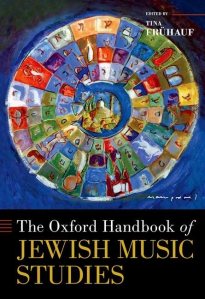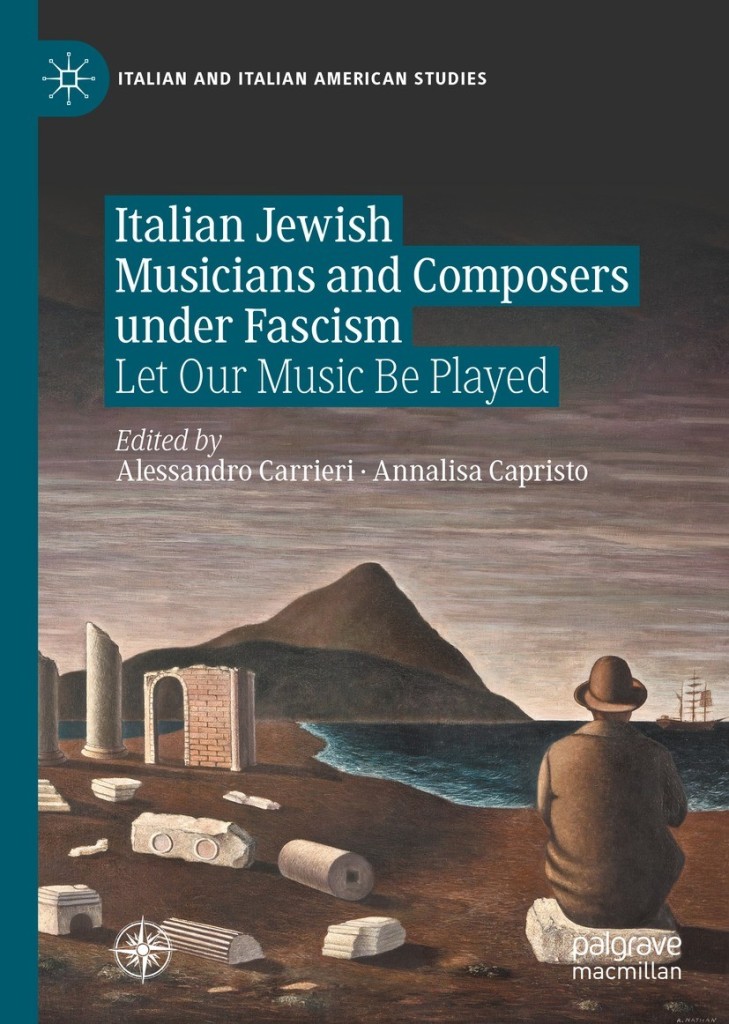You are currently browsing the tag archive for the ‘Holocaust’ tag.
La Memoria Cantata: A Survivor from Warsaw di Arnold Schönberg nell’Europa del dopoguerra. Joy H. Calico. Edizione italiana a cura di Paolo Dal Molin, traduzione di Silvia Albesano. Milan: Il Saggiatore. 2023.
Reviewed by Jesse Rosenberg

On the list of musical works inspired by the Shoah, Arnold Schoenberg’s A Survivor from Warsaw has long held a special status. The realistic description of a roundup of Jews in the Warsaw ghetto, the concluding choral Shema that constitutes one of the strongest testimonies of Schoenberg’s re-commitment to Judaism in the last two decades of his life, and the combination of advanced twelve-tone technique with Sprechstimme, one of the composer’s earliest innovations, unite to make a powerful impression on listeners to this day. In her 2014 monograph Arnold Schoenberg’s “A Survivor from Warsaw” in Postwar Europe, dedicated to the reception of this work, Joy H. Calico documents in detail the effect of this work on European critics and audiences, and subjects it to a thorough analysis.
Read the rest of this entry »The Oxford Handbook of Jewish Music Studies. Edited by Tina Frühauf. Oxford and New York: Oxford University Press. 2023.
Reviewed by Paul G. Feller-Simmons

The publication of The Oxford Handbook of Jewish Music Studies, edited by Tina Frühauf, marks a much-anticipated milestone. Released in November of 2023, the weighty tome attests to the rapidly changing landscape of the field, offering a comprehensive exploration of manifold subjects. With twenty-nine chapters plus an introduction penned by scholars at various stages of their careers, the Handbook truly mirrors the best facets of the field’s current state. While it would be a daunting task to do justice to every chapter within the confines of this review, particularly for an avowed early modernist such as myself, it suffices to say that the volume exudes scholarly rigor and innovation.
Read the rest of this entry »Let Our Music Be Played: Italian Jewish Musicians and Composers under Fascism. Edited by Alessandro Carrieri and Annalisa Capristo. Cham, Switzerland: Palgrave Macmillan. 2021.
Reviewed by Jesse Rosenberg

The last twenty years have witnessed significant developments in scholarship concerning antisemitism in Italy during the ventennio, the twenty-year period of Fascist rule (1923-1943). Thanks to historians such as Michele Sarfatti and Giorgio Fabre, the benign view which had hitherto prevailed with regard to the antisemitic laws promulgated by the Fascist government in 1938 — that these were adapted without conviction, in adherence to the dictates of a new alliance with Germany, and represented an unexpected about-face in the treatment of Italian Jews — have been definitively rebutted. The editors of this superlative collection of essays are aware of these newly-acquired insights (one of them, Annalisa Capristo, has co-authored an important book with Fabre), but also, to judge by the variety of approaches taken by the contributors to the book, equally cognizant of the complexities involved in applying these lessons to the field of music.
Read the rest of this entry »The Pope’s Maestro. Gilbert Levine. San Francisco: Jossey-Bass, 2010. 456 pp. + DVD. ISBN 978-0-4704-9065-5
Reviewed by John T. Pawlikowski

At the beatification of the late Pope John Paul II on May 1, 2011, a Brooklyn-born Jewish orchestra conductor had an honored seat in the audience. How this came to be for a traditional Jew with little prior contact with Catholic religious leaders is the basic narrative of this volume told from a first person perspective by Levine.
Levine’s grandparents emigrated to the United States from Poland. His mother-in-law is a survivor of Auschwitz. He has been a distinguished conductor who has performed with leading orchestras in North America, Europe, and Israel. In 1987 Levine was invited to serve as a guest conductor of the Krakow Philharmonic for one week. This is where his story begins. Read the rest of this entry »
Music in Terezín 1941-1945. Joža Karas. 2nd ed. Hillsdale, NY: Pendragon Press, 2009. ISBN 978-1-5764-7030-5
The Wonder and the Grace of Alice Sommer Herz: Everything is a Present. Dir. Christopher Nupen. DVD and Liner Notes. Allegro Films, 2009.
Shortly before his death in December 2008 Joža Karas completed the second edition of his book Music in Terezín 1941-1945, the culmination of a life’s work. When the book was originally published in 1985 it was path-breaking, documenting a largely unknown chapter in the history of the Holocaust: the lively and wide-ranging musical life in the “model ghetto” Terezín (in Czech, Theresienstadt in German). When Karas began his work as a “modest summer project” in 1970 (ix), very little music from the ghetto had been uncovered, and even less had been written about it. Karas, a Czech researcher and musician based in Connecticut, devoted the rest of his life to passionately researching the subject, conducting interviews across Europe, Israel, and the United States, undertaking archival research, and transcribing scores. In addition to publishing his book, he lectured widely on the subject, produced performing editions, and tirelessly promoted Terezín compositions in performances with his own string quartet, established expressly for that purpose. Karas himself conducted the American premiere of Brundibár in 1975 and the world premiere of the English version (in his own translation) in 1977. In short, the subject of music in Terezín has become well known among Western audiences thanks in large part to Karas’s pioneering efforts. Read the rest of this entry »

 During the last two decades a formidable number of excellent studies have appeared in English and German that have given us an ever fuller picture of the compromised, politicized reality of Germany’s musical culture during the National Socialist period. Lily Hirsch’s book, A Jewish Orchestra in Nazi Germany: Musical Politics and the Berlin Jewish Culture League, is a valuable contribution to this body of knowledge.
During the last two decades a formidable number of excellent studies have appeared in English and German that have given us an ever fuller picture of the compromised, politicized reality of Germany’s musical culture during the National Socialist period. Lily Hirsch’s book, A Jewish Orchestra in Nazi Germany: Musical Politics and the Berlin Jewish Culture League, is a valuable contribution to this body of knowledge.

